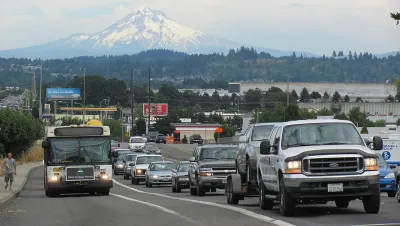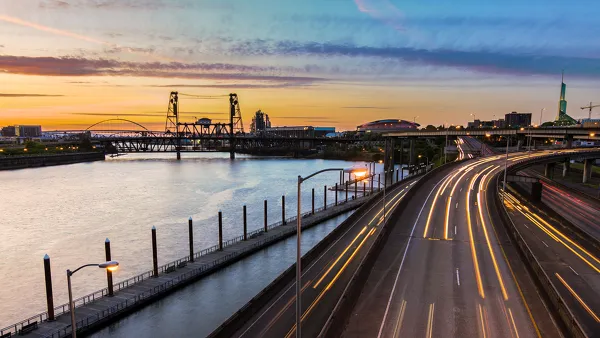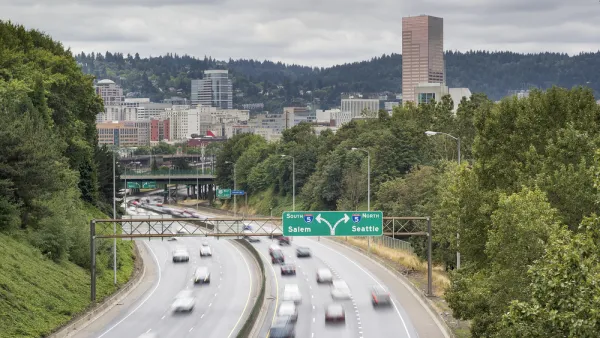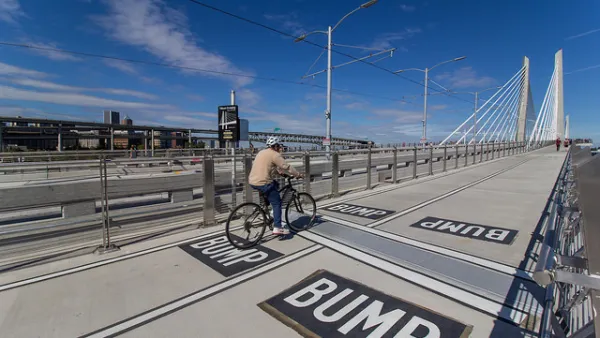Faced with an uptick in roadway fatalities, Oregon is looking at how to increase safety. But it's concentrating on highways while arterials actually account for the region's most severe crashes.

Over at City Observatory, Joe Cortright has been criticizing plans in Oregon and elsewhere to curb congestion by widening freeways. Here, he points out possibly faulty logic (or mixed priorities) in how Oregon's Department of Transportation is pursuing Vision Zero.
"If we're going to achieve Vision Zero, it really means concentrating our energy and resources on the serious crashes, and not the more numerous, but far less serious ones," Cortright writes. Fatalities on Oregon roads have been on the rise in recent years.
Pointing to a recent ODOT report [pdf] on traffic performance in the Portland region, Cortright says the department's priorities are skewed. "The report makes it clear that ODOT is primarily interested in crashes not because they kill and maim Oregonians, but because they're associated with slower freeway traffic."
More attention should be paid to safety on arterial roadways, Cortright says, than on highways, which are statistically safer in the area. "On average, the region's arterials have five times as many serious crashes per mile traveled as freeways, according to the Metro study, a finding they called 'one of the most conclusive relationships in this study.'" That study, which is several years old, can be found here.
FULL STORY: Dying to widen highways

Analysis: Cybertruck Fatality Rate Far Exceeds That of Ford Pinto
The Tesla Cybertruck was recalled seven times last year.

National Parks Layoffs Will Cause Communities to Lose Billions
Thousands of essential park workers were laid off this week, just before the busy spring break season.

Retro-silient?: America’s First “Eco-burb,” The Woodlands Turns 50
A master-planned community north of Houston offers lessons on green infrastructure and resilient design, but falls short of its founder’s lofty affordability and walkability goals.

Test News Post 1
This is a summary

Analysis: Cybertruck Fatality Rate Far Exceeds That of Ford Pinto
The Tesla Cybertruck was recalled seven times last year.

Test News Headline 46
Test for the image on the front page.
Urban Design for Planners 1: Software Tools
This six-course series explores essential urban design concepts using open source software and equips planners with the tools they need to participate fully in the urban design process.
Planning for Universal Design
Learn the tools for implementing Universal Design in planning regulations.
EMC Planning Group, Inc.
Planetizen
Planetizen
Mpact (formerly Rail~Volution)
Great Falls Development Authority, Inc.
HUDs Office of Policy Development and Research
NYU Wagner Graduate School of Public Service




























